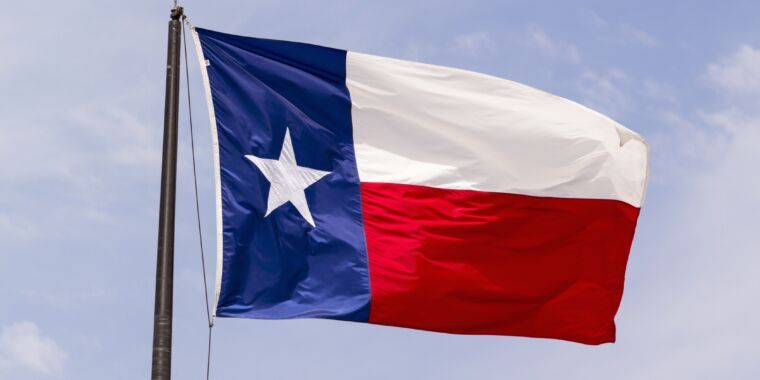- cross-posted to:
- texas
- [email protected]
- cross-posted to:
- texas
- [email protected]
One judge dissents, saying Texas law “limits adults’ access to protected speech.”
Texas can enforce a law requiring age-verification systems on porn websites, the US Court of Appeals for the 5th Circuit ruled Thursday. The appeals court vacated an injunction against the law’s age-verification requirement but said that Texas cannot enforce a provision requiring porn websites to “display health warnings about the effects of the consumption of pornography.”
In a 2-1 decision, judges ruled that “the age-verification requirement is rationally related to the government’s legitimate interest in preventing minors’ access to pornography. Therefore, the age-verification requirement does not violate the First Amendment.”
The Texas law was challenged by the owners of Pornhub and other adult websites and an adult-industry lobby group called the Free Speech Coalition. “We disagree strenuously with the analysis of the Court majority,” the Free Speech Coalition said. “As the dissenting opinion by Judge [Patrick] Higginbotham makes clear, this ruling violates decades of precedent from the Supreme Court.”



age verification inherently means making lists of people accessing information they might not want people knowing about, and information isolation is a classic tactic in support of abuse. it must be opposed at all times and in all forms
Well it’s a complicated topic. To start with, you need to define what constitutes age verification. Do the ubiquitous “I certify I’m over 18” click through disclaimers that essentially all porn websites use count? Personally I say they do. If they don’t, then things become more complicated because there’s a right to privacy, so now you need to balance that against any content restrictions, and there’s a good argument that the right to privacy is the greater right so anything that would violate that is a nonstarter.
As for the legal argument there’s a good bit of prior law that supports the states right to restrict access to pornography to minors (for all the good it does). I’m not trying to debate for or against that, just saying it’s something that the courts have previously upheld and it’s unlikely they would be willing to change their stance now.
Requiring a specific age verification, or that visitor information be turned over to the state in some fashion I think you’d have a pretty good argument is a step too far though and that situation is certainly not a settled legal matter.
Regardless of all that though, arguing that the state has no right to compel what is arguably false speech by way of their bullshit health disclaimer should have been an easy home run. Since the judges had clearly already decided how they wanted to rule in the case and they didn’t have a leg to stand on legally they just moved the goal post and completely ignored the primary complaint to rule on the one aspect that there was some amount of prior law to support.